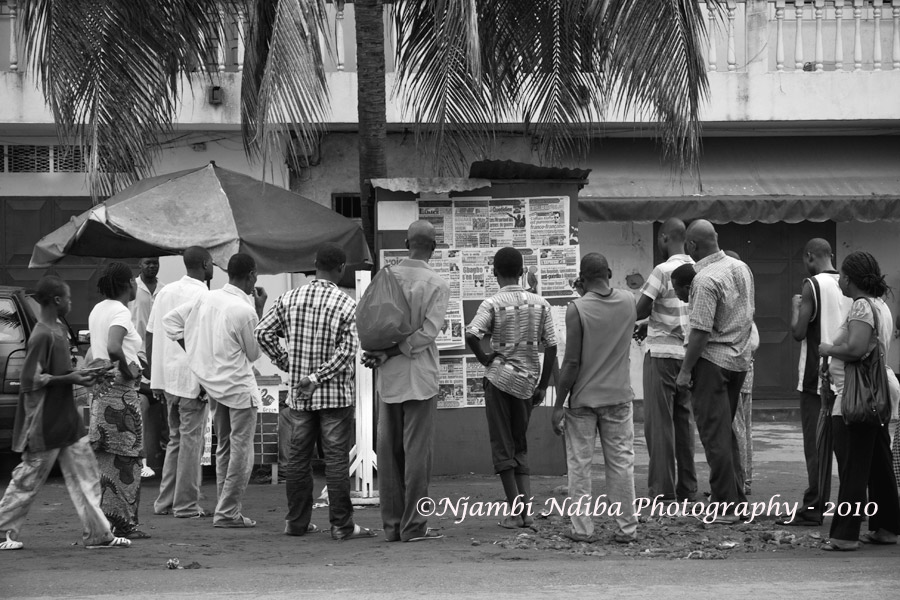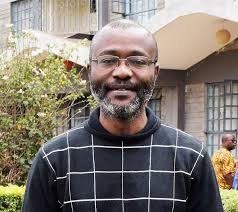
In his recent post, “The Pastor as Sexual Object”, Ebenezer Obadare rightly suggests that the rise of the authority of the Pentecostal pastor in contemporary Africa should also be understood against the background of the decline of other authorities. Focusing on the demise of the authority of the intellectual, he holds that the Pentecostal pastor “now occupies what once was the academic’s spotlight as authority on economic, political, and cultural matters, to such an extent that today, even the academic tends to genuflect to his (i.e. the pastor’s) authority.” As the present contribution also shows, besides the intellectual there are other authority figures who have lost ground in favor of the Pentecostal pastor. During fieldwork in the city of Abidjan, Côte d’Ivoire, we asked our interviewees, most of whom were educated urban dwellers fluent in French and either Christian or Moslem, how they thought of modernity and what images they associated with this category (one even scholars have a hard time defining). Our informants, whose voices are echoed here, lament the decline of parental authority and blame “modernity” for it. As Obadare’s piece notes, what we are witnessing in Africa is not necessarily the disappearance of authority figures in favor of individual freedom, but the emergence of parallel sources of authority competing with traditional ones for social control. We are attempting to capture popular representations of modernity within the framework of the Contending Modernities project and the views echoed here about the ambivalence of modernity cut across religious denominations
The overarching images that emerge from the data include those of “change” (“la modernité c’est le changement”) and “novelty” (“la modernité c’est quelque chose de nouveau” or “pratiques nouvelles”) characterized as both positive and negative and associated with various aspects of social life. One informant sums it up as follows: “modernity is change—the difference between the vision of our forefathers and that of our children today. It is adaptation to current life; it is about new practices”. The baseline here seems to be the “ways of living of our forefathers” that some refer to as “tradition”, which can risk “essentializing” the ways of the “forefathers” by denying them the same historicity accorded to modernity. Indeed, as historians have shown, pre-colonial Africa was as familiar with change as any human society and should not be equated with stability. Some simply describe modernity as “social change” (“changement social”) or as “change of mores” (“changement de moeurs”). But the object of change is not confined to ways of being, thinking, or doing. It is also extended to material, scientific, and technological innovations seen as an essential component of modernity. Science and technology are perceived as the embodiment of modernity. Particular references are made in the interviews to new technologies of communication and information and to new means of transportation which have accelerated the circulation of people and goods and reconfigured how people inhabit space and time.
But modernity is not only about change. It is also seen by interviewees as people’s “ability to adapt” to these changes (“vivre avec son temps”). One is described as “modern” if he or she is open to change, to novelties. For one informant, “[m]odernity has to do with something new suited for our times” (“adapté à notre temps”). For another “modernity is living with one’s time, adapting to the evolution of time and space”. In other words, new times, new ways of living, and new material goods call for adaptation either by embracing them or resisting them. In the words of one interviewee, “modernity is change in present-day society; this change is positive and negative.” For believers, religious norms seem to play a key role in the selective embracing of modernity.
Regarding the “positives” of modernity, informants mentioned, among other things, the development of new technologies which have improved people’s living conditions and made life easier in many respects. Many speak of “improvement of daily living conditions” and of the evolution of “laws governing African realities”. Here, change is described in terms of progress: “modernity is progress—something added onto; that which is new”. Besides new technology, other celebrated imports of modernity referred to by interviewees include western schools and the promotion of the rights of vulnerable categories such as women and children. In the words of one informant, “Modernity has allowed women to express themselves as men”. It is seen as a key factor in growing consciousness about human rights, especially those of vulnerable categories such as women, children and sexual minorities.
But this “redefinition” of the role of women in society is not welcomed by everyone. And here begins the trial of modernity that we primarily focus on in our research: how the revision of the family code has been received by various religious constituencies in the Ivory Coast. Indeed, in the interviews, modernity is also variously associated with “curse”, “debauchery”, “social disequilibrium”, “depravation of mores”, “loss of parental authority”, “reconfiguration of family relationships”, “neglect of religious norms”, “new conceptions of marriage”, “the revolt [i.e. insubordination] of women”, “evolution of sexual practices”, “individualism”, etc. What seems to stands out from this non-exhaustive list of the charges levelled against modernity is the weakening of parental, male, and family authority in favor of individual freedom or new forms of authority. For some, the weakening of parental authority is responsible for the demise of “good education” since parents are no longer allowed chastise their children. One informant expresses his regrets in this way: “[t]oday, children oppose the choices of their parents, and this was not the case in the past. Children claim to have rights: which rights? It is modernity.” Another adds: “the rights of children; you can no longer scold a child, let alone discipline him or her”.
In short, less parental authority seems to imply more individual freedoms leading to what some describe as the “uprooting of the youth” illustrated, for example, by indecent dressing: “Men and women [no longer] dress in a way that is worthy of religion, and hence the punishment from God,” laments one informant. Modernity is seen not only as occasioning the weakening of traditional forms of family life but also as favoring the emergence of news ones such as gay marriage, described by many as “deviant.” As one informant puts it: “modernity is debauchery with regard to marriage: in the past, a man married a woman; today people of the same sex get [married]. This not normal”. What we have here is a good illustration of the ambivalence of popular representations of modernity. It is partly embraced for its scientific and technological wonders, but also partly associated with moral decline especially with regard to family and sexual ethics. Hence the hermeneutic value of the concept of “multiple modernities”: “modernity, if it ever was a single entity, has gone in innumerable and often unanticipated directions…Since modernity has not led to the wholesale convergence of societies and cultures, it is plain that there is nothing particularly ‘natural’ or inevitable about it. Modernity is not simply the logical outcome of an inevitable unfolding of structures and ideas” (Moore and Sanders, 12).

